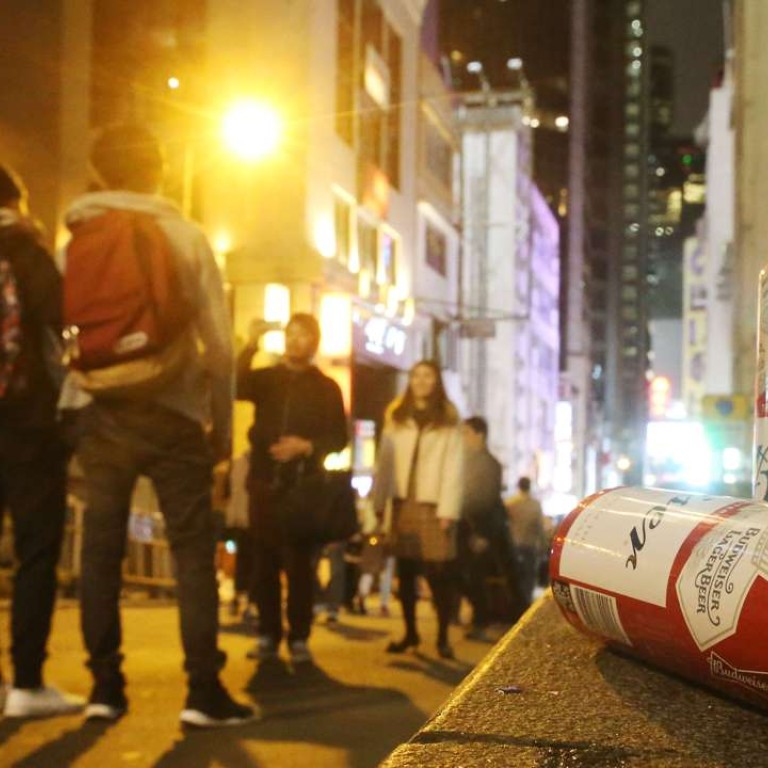
Proposed move on underage drinking is long overdue
Having been heavily criticised over a long-standing loophole in our liquor laws, the government is finally seeking to prohibit convenience stores, supermarkets and other retailers from selling or supplying alcohol to people under 18
Hong Kong is, thankfully, a step closer to banning the sale of alcohol to minors. Having been heavily criticised over a long-standing loophole in our liquor laws, the government is finally seeking to prohibit convenience stores, supermarkets and other retailers from selling or supplying alcohol to people under 18. Long overdue as it is, the move is needed to curb the growing trend of underage drinking in the city. A government survey in 2013 found that 40 to 60 per cent of the upper primary school pupils and secondary school students had drunk before, and some bought the alcohol from convenience stores and supermarkets themselves.
This owes much to the legal anomaly in which liquor-licensed restaurants and bars are banned from serving alcohol to the underaged, while shops are allowed to sell any drinks to youngsters for off-site consumption. Under the proposed change, retailers may ask for proof of age, without which the purchase shall not proceed. But they will not be legally required to check buyers’ identification. The ban also covers online sales with purchasers being required to declare their age to complete the transaction. The penalties will be similar to those related to unauthorised tobacco sales and on-site alcohol consumption on licensed premises, according to officials.
The liability is understandably a concern to business operators. The age verification procedure is expected to add to the burden of the staff and may even fuel disputes. Whether prosecution should be brought against the frontline staff or the business is also an issue.
The government has sensibly introduced some safeguards. For instance, it shall be a defence to prove that reasonable steps have been taken to check the buyers’ age. Traders will also be given guidelines and a reasonable adaptation period. The proposed measures should help ease the worries of the industry.
As in the case of the plastic bag levy and the ban on outdoor smoking, idling engines and the like, it would be unrealistic to expect a massive law-enforcement team spying on each and every corner. That makes spot checks and undercover operations in known nightlife areas more important. Hopefully, it will help foster better awareness and compliance.

